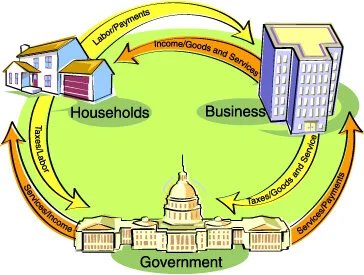Don Pesci: Conn.’s beleaguered moderate Democrats try to push back Progressive schemes
VERNON, Conn.
There is a modest residue of “moderate Democrats” in the Connecticut General Assembly, according to the indispensable Yankee Institute. The moderate Democrat caucus – everyone these days has a caucus – numbers about 28 souls.
The term “moderate”, particularly as it relates to economics, an art rather than a science, is not merely a meaningless point between extremes.
Until the Democratic Party was dropped into the fiery furnace of Keynesian economics, most Democrats were responsible moderates. Bill Clinton, for example, was the last president, Republican or Democrat, who gave the nation a balanced budget. He was, to be sure, a big spender – and so were all other Keynesians who supposed that deficits were worry-proof because the national debt was “a debt we owed to ourselves.”
This mode of thinking, which demolished spending barriers, has now left us with a national debt currently tipping the scales at $28 trillion and growing, so rapidly has the debt we owe to ourselves metastasized. Actually, the national debt, future generations of Americans will be disappointed to learn, is a charge on the future which, as Yogi Berra once said, “ain’t what it used to be.”
In Connecticut, the residue of moderate Democrats is skittish about ever expanding budgets.
Their beef is displayed in a May media release: ““Moderate House Democrats applaud Governor {Ned} Lamont’s stance on No Tax Increases for the current biennial budget. The State of Connecticut should take advantage of higher than expected consensus revenue, a healthy rainy day fund, and its strong financial position to pass a budget that does not include tax increases.”
Lamont appears to be fighting a rearguard action on tax increases, but he is losing footing on stony ground. The White Knight of progressivism in Connecticut, Martin Looney, a cagy president pro tem of the state Senate, and progressive numbers in the General Assembly, are arrayed against him.
The central and controlling Democratic Party ideological imperative – tax more, spend more, tax more – what some would regard as a vicious cycle for the taxpaying working class in Connecticut, now has a receptive audience in much of the state.
This imperative has for decades leapt over any and every rational proposal to cut spending, long term and permanently, so as to broaden the constricting borders of what has been called "dedicated spending" – that is, automatic spending that needs no biennial budget affirmation by the General Assembly, supposedly in charge of getting and spending in Connecticut.
There are, in other words, two taxing tails and no spending-cut head on the Democrat Party coin, so that whenever it is flipped, the coin always comes up tails, a confidence trickster’s swindle.
When Chris Powell, formerly managing editor of the Journal Inquirer, in Manchester, and now a regular political columnist for the paper, was told that some appropriated funding could not be touched in budget negotiations because they were “dedicated funds,” his response was both lucid and revolutionary: Well, undedicate them!
Republicans in the General Assembly, their numbers much reduced, seemed to have settled on at least one campaign platform plank – resolved: there shall be no net increase in taxes – and Lamont appears to be sitting in the same pew. Naturally, appearances in politics, a house of mirrors, are sometimes deceiving.
The fissure between leaders of the progressive movement in the General Assembly, Looney and his counterpart in the House, Speaker Matt Ritter, on the one hand, and Lamont and Democratic moderates on the other hand, appears to be widening. And if legislation were tied to best arguments, Lamont and Democrat moderates would prevail.
Last May, “Democratic legislative leaders announced they were supporting tax proposals passed out of the Finance, Revenue and Bonding Committee that would add a surcharge on capital gains and a second income tax – called a “consumption tax”—on those making over $500,000 per year,” according to Yankee.
And there are more post-Coronavirus, business-crushing tax proposals in the progressive pipeline: “Also included in the proposed taxes is a digital ads tax and making the corporate tax surcharge — which was scheduled to sunset — permanent. Altogether, the tax proposals add up to roughly $1 billion, which Democrat leaders say will be reinvested into Connecticut with a focus on cities and equity.”
These entrepreneurial knee-capping proposals, moderate Democrats feel, are both unnecessary – except perhaps for election purposes – and unwise. “With fiscally sound budgeting practices, the state has positioned itself with an unprecedented $3.5 billion rainy-day fund,” said Rep. Lucy Dathan, D-Norwalk. “Combining this with strong revenue outlook for FY 21 and the incoming ARP funds, we are able to better serve our residents and operate within our current spending cap. Now is not the time to raise taxes.”
However, best ideas and best practices are not always determinative in politics. “Government is force,” said George Washington. Force and numbers often have trumped best ideas, and in the General Assembly, Connecticut’s law-making body, force and numbers lie with Looney, Ritter and hordes of progressives.
Don Pesci is Vernon-based columnist.
